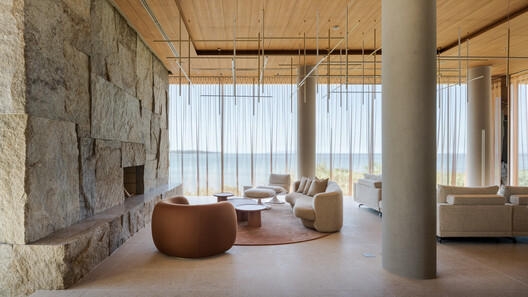Signs Your Office Glass Partitions Need Repair – Is Safety at Risk?


Glass partitions brighten workplaces and sharpen their image, but what gleams on the surface often hides fragility beneath. A single crack, faint chip, or weakened seal can shift without warning from cosmetic blemish to dangerous fault. The very panels meant to inspire confidence can, over time, become the silent source of safety hazards and unexpected costs.
Daily use adds to the strain. Sliding doors pulled open, chairs bumping corners, or cleaning crews working at pace all test the glass. Spotting the first signs of stress preserves both safety and appearance, protecting people while avoiding costly disruption.
Cracks and Chips That Signal Weakening Panels
Modern commercial glass is chosen for its clarity, strength, and ability to bring light into workspaces while maintaining a sleek professional image. Its durability makes it a cornerstone of contemporary office design, but like any high-performance material, it requires careful attention to small flaws before they spread into larger issues.
Corner chips, often hidden by furniture, focus stress and accelerate crack growth under repeated impacts. Hairline fractures near frames lengthen with vibrations from doors and foot traffic, turning minor flaws into full panel failures. Edges are especially vulnerable; even routine cleaning or a bumped chair can exploit weakened spots. Promptly marking and repairing edge damage preserves both safety and the long-term performance of commercial glass installations.
Sticking Doors and Panels That No Longer Operate Smoothly
A glass door that grinds, sticks, or resists sliding is more than a nuisance—it signals stress that can weaken the entire partition system. Dirt buildup in tracks, worn rollers, or bent guides increase friction, creating pressure points where glass meets its frame. Left unaddressed, these stresses may cause cracks or sudden failures, turning a simple fix into a major expense.
Hinged panels bring different risks. When hinges sag, they push uneven pressure onto adjacent glass and hardware, causing misalignment and sound leakage that undermine privacy. Regular inspections, lubrication, and track cleaning restore smooth function, extend component life, and protect employees from sudden, costly breakdowns.
Loose or Unstable Frames Supporting the Glass
Rattling frames betray worn connectors and loose anchors. When a panel shifts in its channel, gaps at the edge concentrate stress; small separations speed edge chipping and sudden fractures. Press the glass near mounts to detect play, and inspect anchor plates for movement or missing fasteners.
Uneven pressure from a shifting frame puts repeated load on one corner, creating hairline cracks that grow with vibration. Visibly corroded clips or outdated brackets can fail without warning, dropping loads onto adjacent panels. Quarterly torque checks on anchors and swapping corroded brackets reduce the chance of abrupt failures and keep inspection cycles predictable.
Moisture or Fogging Between Partition Layers
Cloudy or streaked glass signals a failed seal allowing moisture to creep between layers. Beyond spoiling the open look of modern offices, trapped fog weakens thermal insulation and reduces visibility, leaving partitions hazy and unprofessional. What begins as a cosmetic nuisance can quickly affect hardware stability and increase repair costs.
Moisture accelerates corrosion in brackets, clamps, and fasteners, undermining the partition’s structural integrity. If untreated, stress shifts to the glass itself, increasing risks of cracks or collapse. Prompt resealing and gasket replacement restore clarity, extend service life, and maintain both safety and aesthetics before fogging spreads into a larger, costlier issue.
Declining Acoustic and Visual Privacy Performance
A whisper in a meeting room that everyone outside can hear signals failing sound control. Gaps at mullions, hardened or split seals, and loose frames let airborne noise bypass glazing. Privacy glass that flakes or clears where it should be opaque hints at internal delamination or smart-film failure, eroding confidentiality.
Targeted repairs return function and appearance, reseating glass, replacing seals, tightening hardware, and swapping failed privacy film regain acoustic and visual separation. Run a quick speech test—one person talks at a desk while another listens outside adjacent panels, log breaches and schedule seal or film replacement within 30 days.
Safety, efficiency, and privacy all depend on the condition of office glass systems. A sticking door, rattling frame, or fogged pane may appear minor, yet each one points to stress that can escalate into sudden failure. Addressing these early keeps costs low and shields daily operations from disruption. Regular inspections combined with timely repairs turn maintenance into prevention, preserving strength and clarity. With proactive care, businesses maintain both confidence and comfort, so today’s workplace remains durable, professional, and prepared to support the future without unexpected breakdowns or expensive surprises.
The post Signs Your Office Glass Partitions Need Repair – Is Safety at Risk? appeared first on Entrepreneurship Life.




















:quality(85):upscale()/2023/09/18/918/n/1922398/a1136b676508baddc752f5.20098216_.jpg)
:quality(85):upscale()/2025/10/09/670/n/1922283/00b944c868e7cf4f7b79b3.95741067_.jpg)
:quality(85):upscale()/2025/10/15/765/n/1922398/29c37a6e68efd84bb02f35.49541188_.jpg)
:quality(85):upscale()/2025/09/09/891/n/1922283/7222624268c08ccba1c9a3.01436482_.png)






















